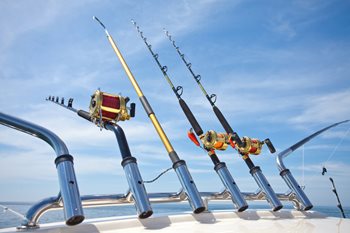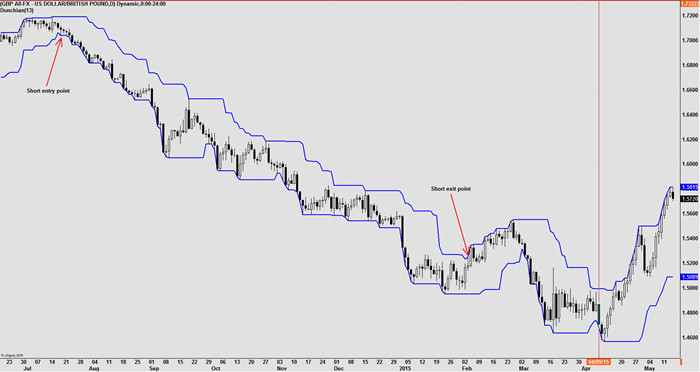It’s the most common complaint I hear from traders ‘I’d like to stay in my trades longer’, but the prospect of being in profit only to watch a trade come back against you is more than most can take, so the first reaction is to always take the money. Of course as the old saying goes, ‘you’ll never go broke taking money’ which is very true provided what you take is larger than what you give away. Imagine how different your trading account would be if you could only bank 1 or 2 big moves a year. That small change to your trading would have a huge impact on your account, with very little effort.
Catching the big fish

The system for catching big trending moves that most traders will be familiar with will be the system used by Richard Dennis in the 70’s that became known around the world as the ‘
Turtle Trading System’. Its simplicity was staggering but it was very effective. It simply required a trader to buy an uptrend when price moved above the highest high of the last X days or sell a down trend when price broke below the lowest low of the last X days. There were two X periods used, a long term that used 50 days and a short term that used 20 days, and it made a lot of money. Until that is, it just stopped working. Largely because markets simply changed, trends were not as common and they didn’t last as long so the system fell out of favour.
Trends haven’t completely disappeared however, and the moves we have witnessed in financial markets since the summer of 2014 has got people asking again ‘how can I stay in moves like we’ve seen in Oil or US dollar for example, for longer’. So is there still merit in this type of trading system? Well let’s take a look. The chart below is that of GBPUSD since July 2014. Using an X period of 13, which is better suited to the type of volatile markets we are now accustomed to, we can see an entry point short on 18
th July 2014 and an exit point from that trade on the 4
th February 2015. That’s almost a 7 month trade, accumulating 1800pips.

A similar trade in Oil would have seen an entry point short on 2
nd July 2014 with an exit point on the 3
rd February 2015, another 7 month trade. But don’t worry, your reaction to these two trades are exactly the same as my initial reaction, these are hindsight trades, impossible to call in as they happened in July 2014. The system is indeed flawed, few market produce these types of moves and if you trade these rules like the turtles did, you will suffer large drawdowns or even blow up your account.
That is unless you could filter out which trends you wanted to trade. The turtle traders did not use a filter but what if we could combine their entry and exit rules with market selection filters such as the Commitments of Traders and Seasonality. If we had information that a move of this magnitude was possible and in a particular market, then this would be the time to employ this type of system. If you had known in June 2014 that short positions in GBP had reached an all-time high and that GBP seasonally peaks in July each year before heading into August, its worst month of the year, then would you have been surprised by the down trend we seen? Or would have been looking for an entry point?
Conclusion
Moves like these do happen and they are easier to catch than many believe. However, if you set out to only catch big fish every time you enter the market you are in for a hiding, but if you catch some small fish and only cast the net for a big fish when the time is right, you will reap the rewards.